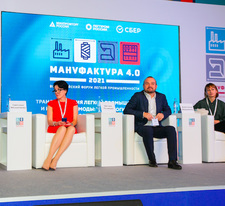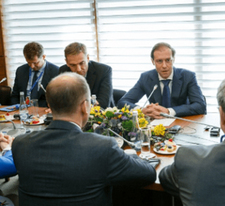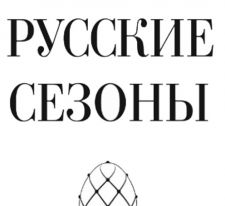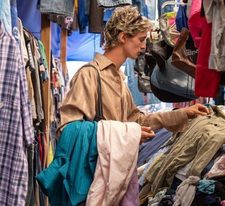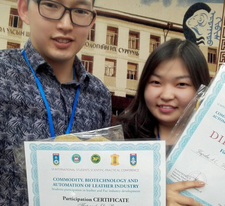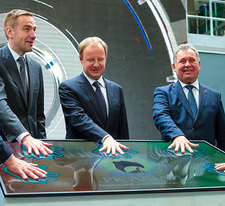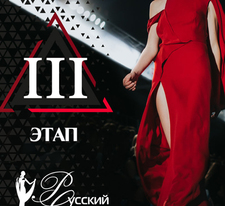Mechanisms of self-regulation in the Russian industry
On February 12, the Public Chamber of the Russian Federation hosted a round table "On the general concept of the place and role of public (self-regulating) organizations in the system of public administration of industry".
A discussion on this complex problem within the framework of the Public Chamber was proposed The Russian Union of Textile and Light Industry Entrepreneurs (SOYUZLEGPROM) due to the increasing relevance of the entire complex of issues on regulating the development of the industry of the Russian Federation and at the same time due to the unsettled regulatory and legislative framework in the field of interaction between the state and sectoral/intersectoral SROs, as well as the continuingthere are gaps in the conceptual apparatus itself related to the regulation and activities of such organizations.

Almost all participants in the discussion expressed regret that representatives of federal ministries and other departments were not present at the Round Table. Although it is in conjunction with the state and business that the predominant number of problems arise that make it difficult for self-regulatory organizations to effectively influence departmental and government decisions in the field of industrial policy.
Opening the discussion, the President of SOYUZLEGPROm, First Deputy Chairman of the Commission of the Public Chamber of the Russian Federation for the Development of the economy, entrepreneurship, services and consumer market, Chairman of the Committee of the Chamber of Commerce and Industry of the Russian Federation on Entrepreneurship in the Textile and Light industry Andrey Razbrodin in his speech outlined the key issues of this topic, which it is advisable to focus on departments, legislators and business structures. Recently, according to Mr. Razbrodin, there has been a trend towards some kind of secondary interaction between business, the state and SRO, and all departments are taking less account of the proposals of industry unions and SRO in the development and implementation of sectoral and intersectoral policies. Viktor Pleskachevsky, an expert on legal and economic issues of the SRO, Vice-president of the RSPP, fully agreed with this. As an example, he clarified that of the 25 recent proposals of the RSPP sent to the Ministry of Economic Development of the Russian Federation on regulatory issues of regulating industry and SRO activities, only one was accepted.
Meanwhile, self-regulatory organizations and related professional communities operating in the industries of market-oriented industrial countries and countries with mixed economies determine the state industry policy. So, in the USA, almost all industry capacities are united in self-regulating associations, the total budget of which reaches $ 10 billion. A similar practice takes place in the EU countries, and in Germany the first association of this profile has been operating since 1923.Andrey Razbrodin,President of SOYUZLEGPROM
As foreign practice shows, clear parameters of interaction between the state and business through SRO "accelerate the solution of topical problems in industry: first of all, a shortage of qualified personnel; a high level of equipment wear, especially in the processing sector; a shortage of working capital; attracting direct investment; debugging inter-industry cooperation". At the same time, according to experts, the regulatory framework remains imperfect and vague both in the SRO segment itself and in the interaction of such organizations with the authorities in Russia. This is especially true for the standardization of SRO activities.

Regarding sectoral and intersectoral programs developed by departments, the participants of the Round Table stressed that such programs should be developed within the framework of sectoral SROs, and not transferred to foreign performers, as was often practiced until recently by the Ministry of Energy and the Ministry of Industry and Trade of the Russian Federation. But the latter is connected, again, with unresolved issues on the interaction of the state with industry organizations and on the regulation of their activities.
Andrey Razbrodin also noted that SOYUZLEGPROM is switching to self-regulation, but this process is not instantaneous because of the same and related issues that require competent and consistent solutions. Other industry associations also have to solve these issues.
Photo: SOYUZLEGPROM


